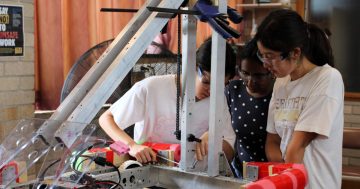
Embracing diversity ensures that employees from different backgrounds, perspectives, and identities feel valued and respected. Photo: Perceptyx.
While employers have made some efforts to meet the rising expectations of their workers in a tight labour market, Dan Schawbel believes more needs to be done. He has some suggestions.
In the wake of a 2023 survey that showed just one in three employees felt engaged at work, it is clear workers expect more today than ever before.
In the aftermath of the Great Resignation, a strong labour market bolstered worker power, creating space for employees to demand higher pay, better benefits, and workplaces that prioritise their wellbeing.
While many organisations have tried to step up, their efforts continue to fall short of rising expectations from employees who seek financial security and a more supportive workplace as the cost of living skyrockets.
A Gallup survey found employees are considering taking action, with about 50 per cent looking to change jobs, identifying wellbeing and work-life balance as the top reasons for doing so.
How can employers meet those rising expectations, delivering a better workplace experience and ensuring that they can retain top talent? Here are some suggestions.
Offer competitive compensation: Not only does this help attract top talent, it sets the stage for a skilled and motivated workforce and signifies a commitment to recognising and valuing employees’ contributions.
By offering competitive pay that aligns with or exceeds industry standards, employees feel fairly rewarded, leading to increased satisfaction and reduced turnover. By doing this, organisations cultivate a positive work environment where employees feel valued, motivated, and empowered to contribute their best.
Provide competitive benefits: Employers can demonstrate a commitment to supporting employees beyond just their salaries, addressing their diverse needs and priorities.
Organisations that offer competitive benefits are investing in the wellbeing and satisfaction of their employees, fostering a positive workplace culture. These benefits can enhance morale, motivation, and overall engagement, leading to increased productivity and a positive work culture.
Prioritise diversity, equity, inclusion, and belonging: These initiatives are essential for cultivating a positive and inclusive employee experience. Embracing diversity ensures that employees from different backgrounds, perspectives, and identities feel valued and respected.
By fostering an environment of equity, employers ensure all their workers have equal access to opportunities for growth, advancement, and recognition. Inclusion initiatives encourage collaboration and cooperation among team members, leading to increased innovation and creativity.
Promoting a sense of belonging helps employees feel connected to their work and their colleagues, fostering greater job satisfaction and loyalty.
Establish good leadership: Strong leadership sets the tone for a healthy workplace. Effective leaders inspire trust, confidence, and respect among their teams, fostering a culture of open communication and collaboration.
By providing clear direction, guidance, and support, they empower employees to perform their best and achieve their goals.
Good leaders also prioritise the wellbeing and professional development of their team members, creating an environment where individuals feel valued, motivated, and appreciated.
Ultimately, investing in good leadership not only enhances the employee experience, it also contributes to the long-term success and sustainability of the organisation.
Support professional development: These opportunities empower employees to enhance their skills, grow their careers, and achieve their full potential.
Offering professional development demonstrates an investment in employees’ long-term success and satisfaction, allowing them to acquire new skills, enhance their abilities, and advance in their careers.
Access to these opportunities also fosters a culture of continuous improvement and innovation, whereby employees are encouraged to strive for excellence and contribute to the organisation’s success.
Encourage team-bonding initiatives: Creating a sense of camaraderie and collaboration is essential, strengthening relationships and enhancing teamwork.
Providing opportunities for employees to connect and engage outside of work tasks builds trust and mutual support, leading to a more cohesive and resilient team.
In the coming years, these issues are likely only to grow in importance, with up-and-coming talent in particular signalling higher expectations.
Gen Z, which is poised to make up 30 per cent of the workforce by 2030, is less afraid to ask for what they need, so we’re likely to see expectations continue to rise.
Dan Schawbel is a bestselling author and managing partner of Workplace Intelligence, a research and advisory firm helping HR adapt to trends, drive performance and prepare for the future. This article is part of his Workplace Intelligence Weekly series.











